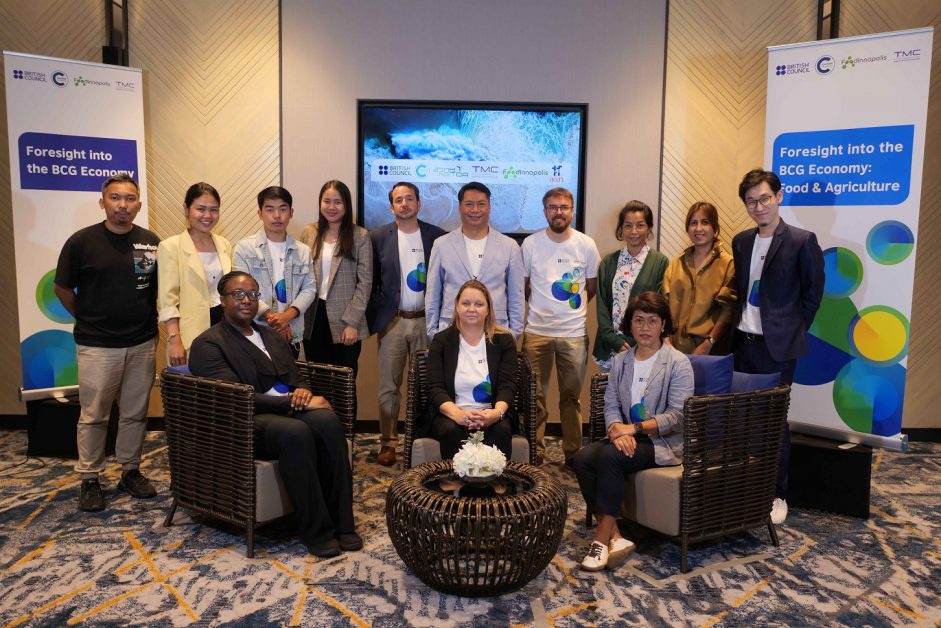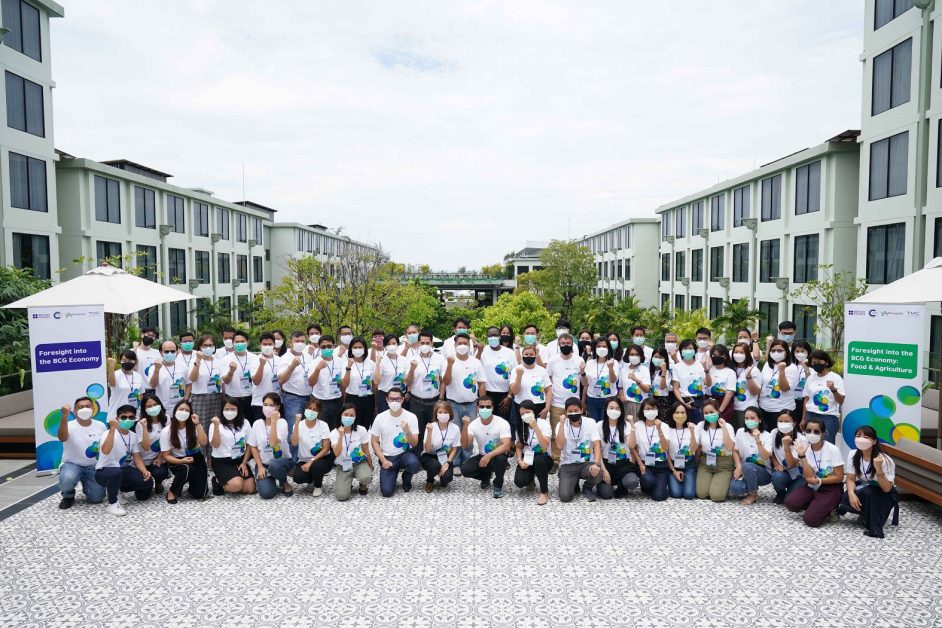Ms. Helga Stellmacher, Director of British Council Thailand, states that Thailand is a country rich in the natural resources, biodiversity, and cultural richness to enable an innovation-driven economy, aligning with the direction of the government through its adoption of the Bio-Circular-Green Economic Model (BCG) as a new economic development model. To achieve this ambition, the country needs to have a good understanding of the key factors affecting future trends in the various BCG-related industries to move in the right direction. In the United Kingdom, foresight methodology has been used as a main tool to analyse trends and identify key drivers to help define strategic vision and create national roadmaps.
From 2018-2020, the British Council, Food Innopolis, the National Science and Technology Development Agency (NSTDA), and Cranfield University, previously worked on the Foresight for Food Project, which later developed into the BCG Economy Project, to expand the focus to the four BCG sectors, namely: 1) Food and agriculture, 2) Health and well-being, 3) Environment, and 4) Tourism, with the aim of creating a circular economy. This project aims to build capacity in foresight skills and develop a framework and strategic roadmap for Thai policymakers, universities, and research institutions to create better-informed education, a research and innovation policy, and improve the implementation of innovation plans, Ms. Helga added.
Prof. Ronald Constanje, Head of the Center for Agricultural and Environmental Informatics, Cranfield University, reported that we invited over 60 participants to join the workshop, including academics, industry experts, entrepreneurs, and policymakers, who are currently working in BCG-related industries in Thailand. The workshop introduces three main foresight processes delivered by UK experts: horizon scanning, visioning, and formulating the roadmap. Following the workshop, five key drivers affecting the food and agriculture industry were identified across all BCG-related sectors: 1) Climate change, 2) Health consciousness, 3) National policy direction, 4) Food technology, and 5) Food security.
In addition, the workshop participants also implemented the knowledge gained from the foresight process to develop the vision for the food and agriculture industry in Thailand to position Thailand as the "Global Hub of Future Food in a carbon free economy, creating new markets for green food products while increasing competitiveness through innovation to enhance health and well-being by maximising the value of local agri-food products in an equitable food system", Prof. Ronald continued.
Asst. Prof. Akkharawit Kanjana-Opas, CEO of Food Innopolis, stated that the challenges for Thailand in driving economic and social development using the BCG Model is that the country still languishes in the middle-income band, and past economic and social development has relied on the unsustainable exploitation of natural resources and biodiversity. This has affected the environment and health of the population, creating inequality, and hence, sustainable growth has become an important goal in the 2021-2027 BCG Strategic Plan.
Asst. Prof. Akkharawit mentioned that the results obtained from this project will be incorporated into a series of recommendations for Thailand's Science Research and Innovation (TSRI), a national policy body for science and research, to inform policy development towards a bio-based, circular, and green economy. The results of this project will also be used as a framework for the Research Funding Unit (PMU) to identify research priority areas for responding to the country's needs and direction.
Ms. Helga concluded that the Foresight into the BCG Economy Project marks a significant milestone in the British Council's global strategic programme for cultural relations and international partnerships entitled "Going Global Partnerships", which aims to build stronger, more inclusive and internationally connected higher education as well as technical and vocational education and training (TVET) systems. Ultimately, this will increase the country's ability to produce research that can be applied at the national level to support decision-making and translate it into commercial benefits for the industrial sector and the country. Soon, the results of this project will be shared with ASEAN member states as a case study and example of best practice for collaboration between policymakers, the tertiary sector, private sector, and UK experts.
For more information, please visit our website www.britishcouncil.or.th or our Facebook page British Council Thailand.
Source: JC&CO Communications

